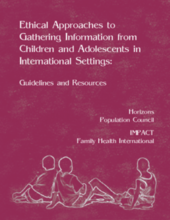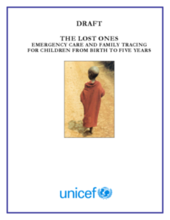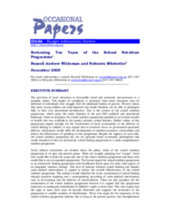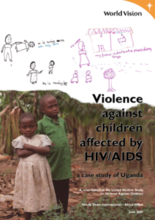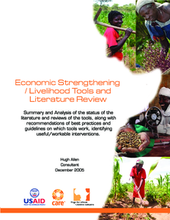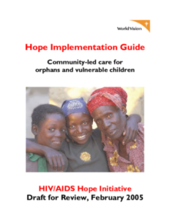Demographic Data
|
Sources: World Bank, UNICEF, UNDP HDR 2015, DHS 2013 |
Displaying 13991 - 14000 of 14551
Practical guidelines emphasizing the importance of and rationale for ethical standards in child-related research. Annexes include country-specific resources and example documents.
Guidance on planning and implementation of child-specific disarmament, demobilization and reintegration (DDR) programming in a peacekeeping environment. Includes definitions, roles for child protection agencies, and key programming considerations on prevention of recruitment.
This study explores four guiding questions: First, what approaches have international organizations developed regarding youth? Second, on which assumptions about youth and their role in violent conflicts are they based? Third, how do the different approaches affect program development, and, fourth, are they are compatible?
Examines current conceptual and practical issues relating to reunification of street children with their families. Includes guidelines for organisations operating or starting reunification programmes and suggests directions for future research.
Guidelines for the care of young children separated from their families in emergencies. Includes detailed information on prevention of separation, child registration and documentation, and family reunification.
Reviews the history, effectiveness, and efficacy of the School Nutrition Programme in South Africa. Conclusions strengthen arguments for programme expansion.
Report documenting participatory research conducted on violence against children affected by HIV/AIDS in Uganda. Particular focus on the stigmatisation and discrimination.
Assessment of pilot programs employing World Vision Community Care Coalition model in Uganda and Zambia.
Summary and analysis of the status of the literature and reviews on economic strengthening and livelihood tools. Contains recommendations of best practices and guidelines on which tools work.
Detailed guidance on implementation of programs for OVC care. Includes list of technical resource contacts. Complement to the World Vision ADP Toolkit for HIV/AIDS Programming.

